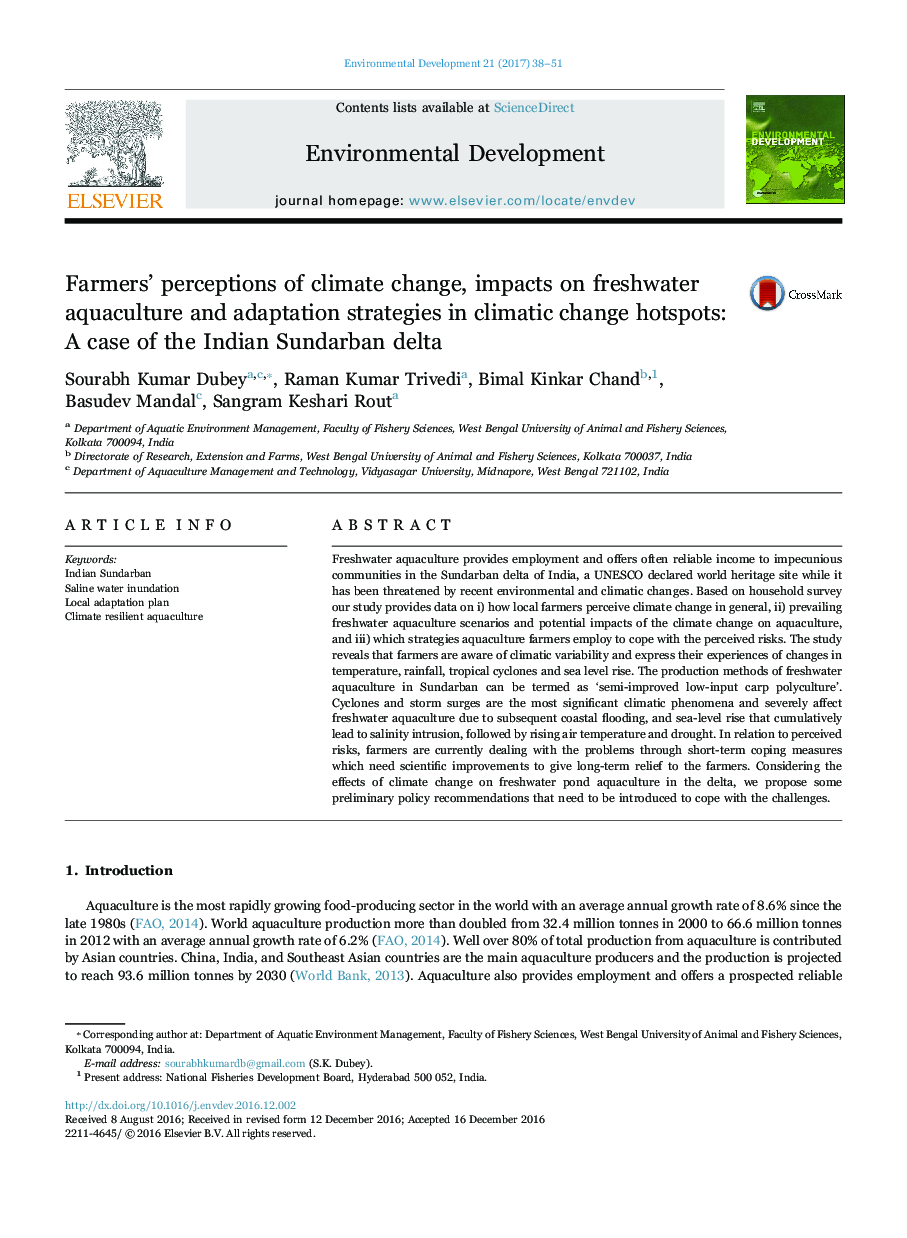| Article ID | Journal | Published Year | Pages | File Type |
|---|---|---|---|---|
| 5744161 | Environmental Development | 2017 | 14 Pages |
â¢Freshwater aquaculture of Sundarban delta in India has been threatened by climatic changes.â¢Aquaculture farmers are aware about changes in temperature, rainfall, tropical cyclones and sea level rise.â¢Cyclone and storm surge are the most significant climatic phenomena that severely affect freshwater aquaculture, subsequently coastal flooding, and sea-level rise that cumulatively lead to salinity intrusion, followed by rising temperature and drought.â¢In relation to perceived risks, farmers are currently dealing the problems through short-term coping measures which need scientific improvements to give long-term relieve to the farmers.â¢Considering to the effects of climate change on freshwater aquaculture, 'climate resilient aquaculture strategies' and integrated coastal zone management (ICZM) can be implemented as local adaptation plan.
Freshwater aquaculture provides employment and offers often reliable income to impecunious communities in the Sundarban delta of India, a UNESCO declared world heritage site while it has been threatened by recent environmental and climatic changes. Based on household survey our study provides data on i) how local farmers perceive climate change in general, ii) prevailing freshwater aquaculture scenarios and potential impacts of the climate change on aquaculture, and iii) which strategies aquaculture farmers employ to cope with the perceived risks. The study reveals that farmers are aware of climatic variability and express their experiences of changes in temperature, rainfall, tropical cyclones and sea level rise. The production methods of freshwater aquaculture in Sundarban can be termed as 'semi-improved low-input carp polyculture'. Cyclones and storm surges are the most significant climatic phenomena and severely affect freshwater aquaculture due to subsequent coastal flooding, and sea-level rise that cumulatively lead to salinity intrusion, followed by rising air temperature and drought. In relation to perceived risks, farmers are currently dealing with the problems through short-term coping measures which need scientific improvements to give long-term relief to the farmers. Considering the effects of climate change on freshwater pond aquaculture in the delta, we propose some preliminary policy recommendations that need to be introduced to cope with the challenges.
